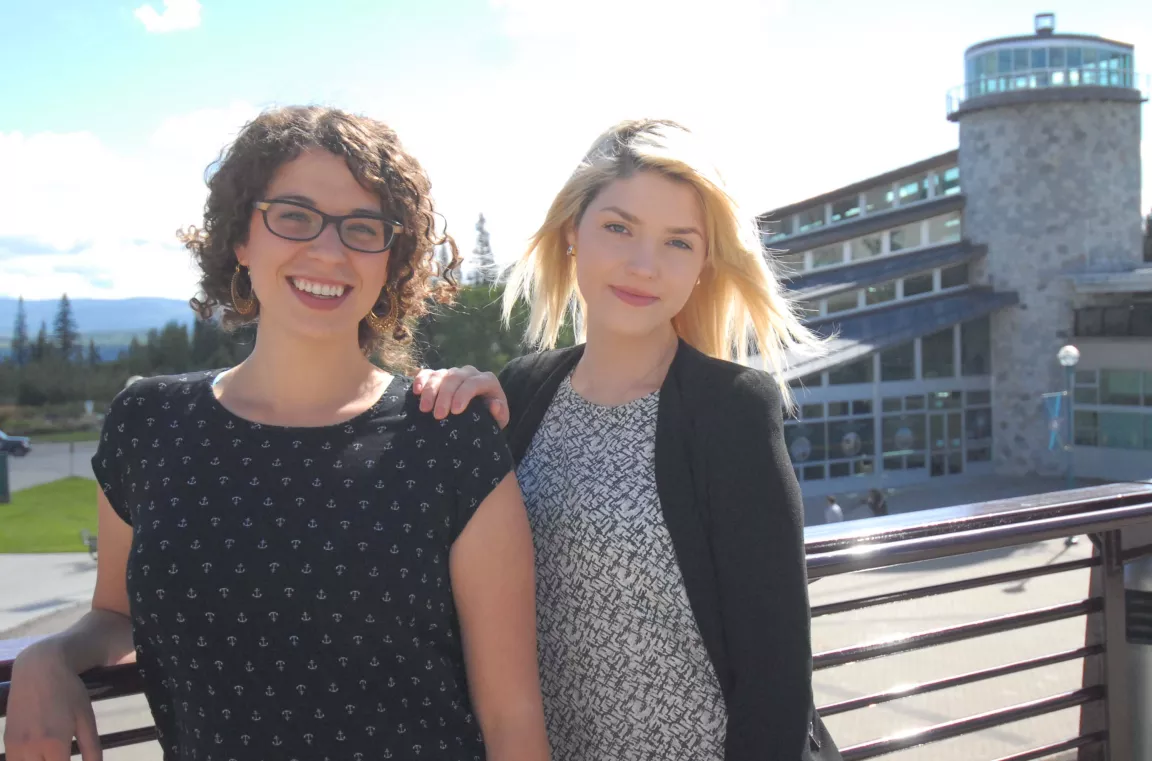Exchanging Knowledge

More than 13,000 kilometres of the Pacific Ocean separate Canada from New Zealand, but as participants in the Cross-Cultural Indigenous Knowledge Exchange program continue to discover there are many similarities between Indigenous people in the two Commonwealth countries.
Funded by the Queen Elizabeth II Diamond Jubilee Scholarship program, the program facilitates exchanges between UNBC and Te Whare Wānanga o Awanuiārangi, a Maori university in Whakatāne on New Zealand’s North Island. The inter-disciplinary exchange focuses on Indigenous issues on both sides of the ocean, but for many of the participants the learning goes far beyond the classroom.
“People have a deep interest in other people’s culture,” says Ross Hoffman, UNBC First Nations Studies Associate Professor. “You can learn a lot about yourself by being in other places.”
That is certainly the case for Mia Pupic, who was part of the initial cohort of UNBC students to go to New Zealand. She felt a deep connection with the Maori people, despite not being of First Nations heritage herself.
“My stay in Aotearoa (New Zealand) has helped me further understand what my purpose is in this world, who I truly am, and who my ancestors are,” she says. “The Cross-Cultural Indigenous Knowledge Exchange Program was an experience that was beyond all my expectations, and I feel like I came back home a changed person.”
The exchange experience can be just as powerful for students coming from New Zealand to Northern B.C.
A master’s student studying indigenous languages, Christina Nuku split her time in Canada between the Prince George campus and UNBC’s affiliate campus Wilp Wilxo’oskwhl Nisga’a Institute in Gitwinksihlkw. She particularly enjoyed her experience in the Nass Valley where she lived with an elder and experienced the vitality of day-to-day live in the community.
“Everything I learned here I absorbed into my entire being,” Nuku recounts of her experience in the Nass Valley. “The energy of the land and the people remind me why it is important to protect those things precious to us.”
Hoffman and UNBC First Nations Studies Assistant Professor Dr. Agnes Pawlowska-Mainville use a holistic process to select the students for the exchange to ensure the students are a good fit for the program.
While many of the students participating in the program are either Aboriginal students themselves or First Nations Studies majors, the program is also open to other UNBC students who are studying indigenous issues.
“The personal impact on the lives of the students is very profound,” Hoffman says. “It will affect relationships they have with people back home.”
Pictured above: Roxanne Umpherville (left) and Mia Pupic are both Queen Elizabeth II Diamond Jubilee Scholars and have travelled to New Zealand for the Cross-Cultural Indigenous Knowledge Exchange Program. Umpherville's internship was in in food sovereignty and food security and Pupic's internship consisted on access to health care for Maori communities.